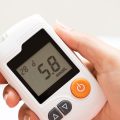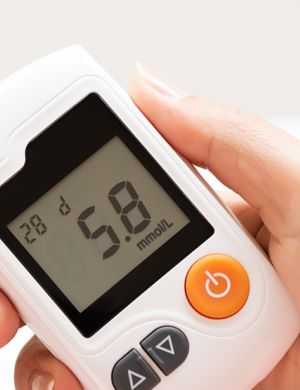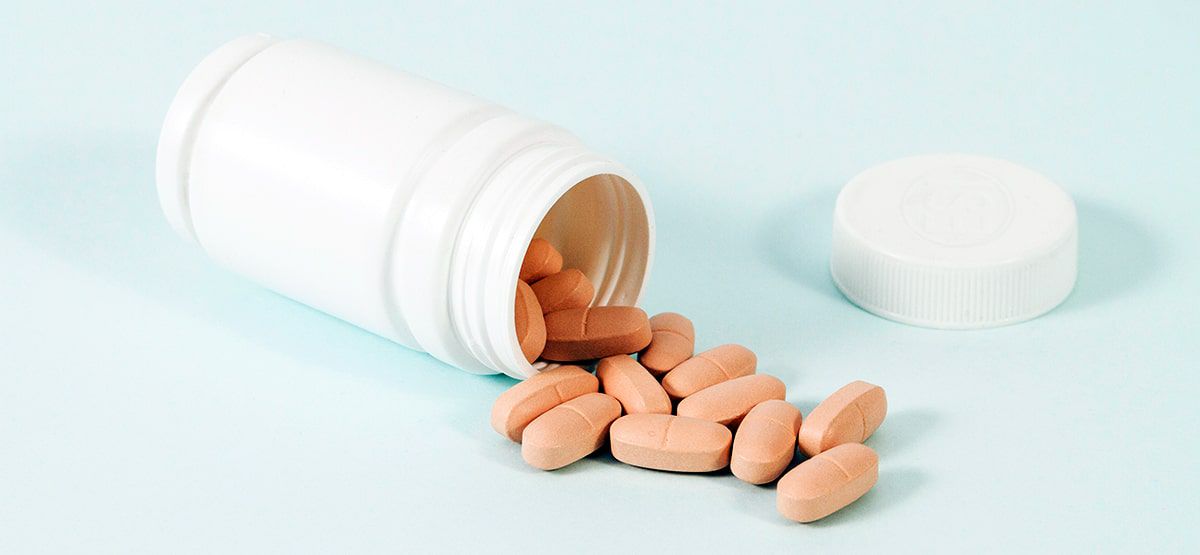
Pharma – Asia, S America, MENA, ROW Regulatory News – March 2025
ARGENTINA
ANMAT in numbers: Advertising Monitoring and Inspection Program
The Program for Monitoring and Oversight of Advertising and Promotion of Products Subject to Health Surveillance is responsible for analyzing the advertisements disseminated through digital and traditional media on those products regulated by ANMAT: medicines, food, medical products, household products, cosmetics and personal hygiene products. This report provides statistical details of the advertisements audited during the first two months of 2025, comparing the results with the same period the previous year.
AUSTRALIA
TGA confirms decision to not register lecanemab (LEQEMBI)
The Therapeutic Goods Administration (TGA) decided not to register lecanemab (LEQEMBI) on the Australian Register of Therapeutic Goods (ARTG) for treating Mild Cognitive Impairment (MCI) and Mild Alzheimer’s dementia due to insufficient evidence of its safety and efficacy across the full target population. While clinical data showed some slowing of disease progression in certain groups, this effect was not consistent across all populations for which the treatment was proposed. Although the TGA Delegate acknowledged that lecanemab demonstrated an acceptable safety and efficacy profile in APOE4 noncarriers and proposed a restricted indication for this group, the applicant, Eisai Australia Pty Ltd, declined this option. The applicant instead suggested broader access for APOE4-heterozygous patients under specialist supervision, but the Delegate found this approach too vague to ensure safe use and manage risks, particularly those related to ARIA (amyloid-related imaging abnormalities). As a result, the initial decision to refuse registration was upheld.
TGA seizes thousands of illicit vapes, nicotine pouches and therapeutic goods in Western Sydney
The Therapeutic Goods Administration (TGA) has seized over 5,000 vapes, 7,000 nicotine pouches, and more than 2,000 units of alleged illicit sildenafil from two sites in Penrith, Sydney, with an estimated street value exceeding $360,000. These products were allegedly unlawfully possessed or supplied in violation of the Therapeutic Goods Act 1989. In Australia, therapeutic vapes and nicotine pouches are prescription-only medicines and can only be supplied legally through pharmacies for smoking cessation or nicotine dependence. Retail sale through tobacconists or convenience stores is illegal. The TGA emphasized the serious health risks associated with unregulated nicotine products and reiterated its commitment to enforcing the law and protecting public health. Since early 2024, around 7.8 million vaping products, worth over $230 million, have been seized by the TGA and Australian Border Force, with further enforcement efforts underway nationwide.
Listed medicine compliance review reports database March 2025 update
The Therapeutic Goods Administration (TGA) has updated its Listed Medicine Compliance Reports Database with the latest review results for 37 listed medicines. This update includes products containing valerian, lysine hydrochloride (used for cold sore management), and Vitamin D (related to bone health), as well as medicines making non-permitted claims about conditions such as ADHD, asthma, cardiovascular disease, diabetes, exercise performance, and urinary frequency. Listed medicines, identifiable by an ‘AUST L’ number, include vitamins, herbal remedies, and some sunscreens. While these products do not undergo pre-market evaluation by the TGA, sponsors must certify they meet all legal standards. Listed medicines must use only pre-approved low-risk ingredients and make therapeutic claims supported by evidence. The TGA conducts regular post-market reviews to ensure compliance, taking regulatory action when necessary. These outcomes are published quarterly to help consumers make informed decisions and avoid unsuitable products.
BOLIVIA
AGEMED Trains Municipal Guards to Combat Illicit Trade in Medicines
On March 14–15, 2025, the State Agency for Medicines and Health Technologies (AGEMED), in coordination with the Municipal Secretariat of Citizen Security, conducted a training program for municipal security guards to strengthen surveillance and control against the illicit trade of medicines, absorbent products, and hygiene items. The training focused on identifying official health registry codes (RS, DI, NSOC, NSOH, NSOA), detecting counterfeit or smuggled products, recognizing authorized pharmaceutical establishments, and using AGEMED’s digital tools for verification. Emphasis was also placed on the dangers of purchasing medicines from informal markets or social media, highlighting risks such as poisoning, bacterial resistance, and death. The initiative supports the enforcement of Drug Law No. 1737, Supreme Decree 25235, and related health regulations to ensure the safety and efficacy of medical products in Bolivia.
AGEMED Educates Public in Cochabamba on Safe Medicine Identification and Purchase
On March 20, 2025, AGEMED conducted an information campaign near the Bolivian Postal Agency in Cochabamba to educate the public on correctly identifying the Sanitary Registry of medicines, cosmetics, household hygiene products, and personal absorbents, as well as recognizing legally authorized pharmaceutical establishments by SEDES. The initiative warned against purchasing medications from informal markets or online sources due to risks such as counterfeit or adulterated products, which can cause allergic reactions, irritation, or delayed adverse effects. The public was encouraged to buy only from authorized pharmacies, verify expiration dates, lot numbers, and health registration details, and report any illicit product sales to help protect community health.
BRAZIL
Health participates in international seminar on pharmaceutical inputs
The Ministry of Health participated in the 4th International Seminar on Active Pharmaceutical Ingredients (APIs), Latin America’s largest event focused on the sector, organized by Abiquifi. Gabriela Maretto, Director of the Department of the Economic-Industrial Complex and Innovation for the SUS (Deceiis), presented federal initiatives to rebuild and strengthen Brazil’s capacity to produce APIs, emphasizing the importance of national production for health security, especially in light of recent global health crises. Key measures include leveraging SUS’s purchasing power, public investments through the New Growth Acceleration Program (New PAC), and incentives for innovation via programs such as the Local Development and Innovation Program (PDIL). The Productive Development Partnership Program (PDP), active for nearly two decades, currently supports 67 partnerships and has enabled the national production of 23 synthetic and 2 biological APIs. These efforts are aligned with the National Strategy for the Development of the Health Economic-Industrial Complex (CEIS), which prioritizes APIs as strategic products. Infrastructure investments, including the R$510 million Bio-Manguinhos campus in Eusébio (CE), and over 322 projects submitted to PDP and PDIL in 2024, reflect growing commitment from public and private stakeholders to build a more resilient, innovative, and self-sufficient health system.
CHILE
ISP and PAHO hold a national workshop to detect counterfeit pharmaceutical products and their illegal online sales.
The Public Health Institute (ISP) of Chile, in collaboration with the Pan American Health Organization (PAHO), hosted a three-day seminar (March 11–13) focused on strengthening post-marketing surveillance of medicines, with a particular emphasis on combating counterfeit and substandard drugs. A key highlight was the implementation of the AI-powered Night Crawler tool, developed with Swissmedic, which identifies and monitors high-risk websites selling counterfeit medicines. The seminar addressed factors contributing to the proliferation of illegal drugs—such as weak penalties and online sales—and underscored the health risks and economic impacts of falsified products. Over 1,273 incidents of counterfeit medical products were reported in 15 countries during the early COVID-19 pandemic. The event brought together national and international stakeholders, including law enforcement, health agencies, regulatory bodies, and pharmaceutical associations, to develop a coordinated, intersectoral action plan aimed at enhancing medicine safety and protecting public health.
CHINA
China approves 48 innovative drugs in 2024
China approved 48 first-in-class innovative drugs in 2024, covering nearly 20 therapeutic areas, including oncology, neurological disorders, endocrine diseases and anti-infective medicines, according to a report released by the National Medical Products Administration on Tuesday. The report stated that 17 among the 48 novel drugs received market approval through a priority review pathway, 11 gained conditional market approval and 13 were included in breakthrough therapy programs during clinical trials. In addition, the nation also approved 55 rare disease medicines and 106 pediatric medicines. Furthermore, 35 medications were granted expanded pediatric indications, which is expected to help alleviate the shortage of pediatric medication options, said the report.
Measures facilitate approval of 48 first-in-class innovative drugs
In 2024, China approved 48 first-in-class innovative drugs, the highest number in the past five years, marking a significant step in expanding patient access to novel therapies. These drugs cover nearly 20 therapeutic areas, including oncology, neurological disorders, and anti-infective medicines. The approval process was enhanced by measures aimed at improving review efficiency, with 17 drugs receiving market approval through a priority review pathway, 11 gaining conditional approval, and 13 included in breakthrough therapy programs during clinical trials.
In addition, China approved 106 pediatric medicines and granted expanded pediatric indications for 35 drugs, addressing the shortage of pediatric treatment options. The country also authorized 55 rare disease medicines. To accelerate drug approvals, the National Medical Products Administration established four accelerated pathways, including the priority review program, which shortens standard review times to 130 days, or even 70 days for urgent clinical needs and drugs approved overseas.
Notably, China approved lecanemab for Alzheimer’s disease, the first antibody treatment believed to slow the progression of the disease, making China the third country to approve it after the U.S. and Japan. The administration has also been focusing on treatments for Alzheimer’s as the population ages, drafting technical standards and approving trials for several innovative drugs targeting the disease.
EGYPT
Egyptian Drug Authority Advances National Drug Withdrawal Initiative
On March 29, 2025, the Egyptian Drug Authority (EDA) announced significant progress in its expired medicine withdrawal initiative, launched to safeguard public health by removing expired pharmaceutical products from circulation. As part of this effort, 6,364 pharmacies registered through the designated electronic platform, resulting in the withdrawal of approximately 341,000 expired drug units. Additionally, distribution companies coordinated with the EDA to withdraw around 146,000 units, ensuring their safe removal from the market.
This initiative, carried out under EDA Resolution No. 47 of 2025, is being implemented in partnership with manufacturers, distributors, and pharmacies, and is overseen by a general committee headed by the Central Operations Department, alongside representatives from the Pharmacists Syndicate, the Chamber of Pharmaceutical Industries, and the Chamber of Commerce. Local sub-committees across all Egyptian governorates have also been formed to monitor compliance, report challenges, and provide weekly updates.
The EDA emphasized that distribution companies must submit regular reports and that any pharmacy failing to comply with the recall directive will face legal action. An electronic platform has been provided to ensure transparency and traceability in the recall process. Furthermore, the EDA will maintain ongoing supervision, coordinating with relevant stakeholders until the withdrawal of all expired medications is completed.
This initiative reflects the EDA’s strong regulatory and oversight role in protecting consumers from the health risks associated with expired medications and promoting safe disposal practices in line with environmental and health standards.
Egyptian Drug Authority Discusses Updates to Pharmaceutical Registration Policies
On March 12, 2025, Dr. Ali El-Ghamrawy, Chairman of the Egyptian Drug Authority (EDA), led a meeting with representatives from the Pharmaceutical Division of the Federation of Egyptian Chambers of Commerce to discuss updates to pharmaceutical registration policies. The meeting focused on improving procedures for registering human pharmaceutical products and enhancing collaboration between the EDA and the Pharmaceutical Division.
The discussions covered updating registration mechanisms to ensure a continuous flow of pharmaceutical products in the market, addressing strategies to increase local production, and ensuring drugs’ access while meeting regulatory and technical standards. The goal is to align these strategies with global trends, ensuring access to high-quality, efficient medicines.
The meeting emphasized adopting flexible, advanced mechanisms based on international standards, which would enhance transparency, stabilize the pharmaceutical supply, and ensure sustainable development in the sector. All parties agreed on the importance of maintaining coordination to keep up with global developments and integrate pharmaceutical and regulatory policies for the benefit of the health sector.
The meeting included prominent figures from both the EDA and the Pharmaceutical Division, such as Dr. Ali Auf, Dr. Mohamed El-Naggar, Dr. Haitham Dowidar, and Eng. Yasser Waked, along with senior officials from the EDA, including Prof. Dr. Hanan Amin and Dr. Osama Hatem. This collaboration reflects the EDA’s ongoing efforts to strengthen partnerships and ensure the sustainable availability of pharmaceutical products, supporting the country’s broader goals of sustainable development in the pharmaceutical sector.
Egyptian Drug Authority Intensifies Market Control Efforts in January and February 2025
In January and February 2025, the Egyptian Drug Authority (EDA) ramped up its market control efforts, conducting extensive inspection campaigns targeting both public and private pharmacies, as well as unlicensed establishments. These efforts were carried out in collaboration with various regulatory and security agencies, covering over 30,000 pharmacies, drug stores, distribution companies, and drug factories.
The EDA conducted more than 450 joint campaigns, uncovering over 3,000 violations, including the seizure of medicines not registered with the EDA, unlicensed medical supplies, narcotic and psychotropic drugs, and the illegal operation of pharmacies. Notably, 46 unlicensed premises were seized, including locations involved in illegal manufacturing and storage of medicines and veterinary drugs, as well as facilities withholding strategic drugs such as antibiotics, insulin, and painkillers.
Additional raids were conducted on private clinics and hospitals in coordination with local health authorities. These inspections led to the confiscation of unregistered medicines, narcotic drugs, and violations related to unlicensed pharmacies and storage facilities. The total value of the seized goods exceeded 57 million Egyptian pounds.
The Egyptian Drug Authority emphasized its commitment to ensuring the safety and integrity of the pharmaceutical market and urged pharmacists and citizens to report any violations through its official communication channels, including the hotline 15301 and its website. These efforts are part of the EDA’s ongoing mission to maintain the quality, efficacy, and safety of pharmaceutical products and medical supplies circulating in Egypt.
FRENCH GUIANA
The European Health Data Space: A revolution for innovation in healthcare
The European Health Data Space (EHDS), set to take effect in 2025, introduces a unified regulatory framework for digital health across the EU. It aims to create a single market for interoperable electronic medical records, medical devices, and AI systems, making it easier for manufacturers to scale across borders. The regulation emphasizes interoperability, strict access logging, and mandatory data sharing to support research, while offering protections for intellectual property and compensation for data-sharing costs. EHDS presents major opportunities for innovation and market expansion, but also requires manufacturers and data holders to meet new compliance and governance standards.
NIGERIA
Alert on Falsified OXYCONTIN 80mg identified in the WHO European Region
The National Agency for Food and Drug Administration and Control (NAFDAC) has issued a public alert regarding a falsified batch of OXYCONTIN 80mg (oxycodone hydrochloride) discovered in the unregulated market in Switzerland. The alert, originally reported to the World Health Organization (WHO) by the genuine manufacturer, MUNDIPHARMA, in February 2025, warns that the falsified product is designed to mimic OXYCONTIN 80mg authorized for sale in Poland. Laboratory analysis conducted by the Drug Information Centre in Zurich revealed that the counterfeit tablets did not contain oxycodone, but rather a potent synthetic opioid likely belonging to the nitazene class. Nitazene compounds, such as metonitazene and isotonitazene, are extremely powerful opioids with a high risk of addiction, overdose, and death, even in small doses. These substances are not approved for medical use and have been linked to multiple fatalities. The falsified OXYCONTIN product was confirmed by MUNDIPHARMA to be fraudulent and not produced by the company. It poses a serious health risk, particularly to individuals with substance use disorders who may mistakenly believe the product is legitimate. Key visual discrepancies on the falsified packaging include incorrect placement of batch and expiry dates, which appear on the front of the blister strip instead of the back, and are reversed in position compared to genuine packaging. NAFDAC urges the public to be cautious and report any suspected counterfeit products to the appropriate health authorities.
Alert on the Sale of Counterfeit Noristerat Injection 200mg in Nigeria
The National Agency for Food and Drug Administration and Control (NAFDAC) has issued a public warning about the circulation of mislabelled and counterfeit injection ampoules being sold as Noristerat Injection 200mg. Laboratory analysis revealed that the falsified product actually contains Chlorpheniramine and Dexamethasone—two medications not intended for use as contraceptives—and has been deliberately repackaged to appear as Noristerat, a contraceptive injection that provides up to eight weeks of pregnancy protection. These counterfeit ampoules have been found in multiple locations, including Niger State, Bauchi State, and most notably at the Coordinated Wholesale Centre (CWC) in Kano State. Authorities have successfully tracked and arrested the individual responsible for the counterfeiting, and further investigations and enforcement actions are underway. NAFDAC urges the public to be vigilant and report any suspicious products to ensure safety and protect public health.
PERU
Minsa and DIGEMID Inspectors Ensure Recall of Defective Saline Solution in Cusco
In response to the detection of a defective batch (lot 2123624) of physiological saline solution produced by Medifarma S.A., the Ministry of Health (Minsa) deployed 36 inspectors from the General Directorate of Medicines, Supplies, and Drugs (DIGEMID) to the Cusco region. This action was aimed at verifying the withdrawal and immobilization of the affected product in clinics, pharmacies, and drugstores across Cusco and surrounding areas including Anta, Calca, Pisac, and Urubamba. Coordinated with the Regional Health Management Office (Geresa) in Cusco, the inspectors reviewed purchase invoices, verified product batches, and ensured proper documentation of returns. Although the compromised product was not distributed in public health facilities, it reached private establishments, where it has now been effectively removed. Citizens are advised to buy medicines only from authorized outlets and report any adverse reactions to the Peruvian Pharmacovigilance System.
DIGEMID’s Drug Price Observatory Offers Nationwide Access to Medicine Prices
The Ministry of Health’s Drug Price Observatory, managed by DIGEMID, provides citizens with access to up-to-date information on more than 16,000 pharmaceutical products available in over 30,000 authorized pharmacies and drugstores across Peru. This virtual platform allows users to compare prices and locate the nearest establishment carrying the needed medication by simply visiting http://observatorio.digemid.minsa.gob.pe. The system enables searches by product name and filters by location (department, province, district). It displays results from lowest to highest price and includes detailed information such as pharmacy address, hours, contact info, and product details including brand, manufacturer, and condition. The Observatory includes both International Common Name (INN) and brand-namemedications. Data is updated based on real-time input from pharmacies, empowering consumers to make informed, cost-effective choices when purchasing their medicines.
Minsa and DIGEMID Ensure Market Withdrawal of Defective Saline Solution in Cusco
Following the detection of a defective batch (No. 2123624) of saline solution from Medifarma S.A., the Ministry of Health (Minsa) deployed 36 inspectors from DIGEMID to Cusco and nearby areas including Anta, Calca, Pisac, and Urubamba. Their mission was to verify the complete traceability, immobilization, and withdrawal of the product from clinics, pharmacies, and private drugstores. Coordinating with the Regional Health Office (Geresa), inspectors reviewed invoices, identified affected batches, and collected return documentation. The defective saline solution was not distributed to public facilities and was found only in the private sector. Establishments such as Gold Medical, Víctor Paredes, San Juan de Dios, Oxigen Medical Network, San José clinics, and Jaqueline pharmacy were inspected, and all had the faulty products removed. DIGEMID urged establishments to remain vigilant and report any adverse reactions to the Peruvian Pharmacovigilance System, reminding the public to always purchase medications from authorized providers.
RUSSIA
Mikhail Murashko sent greetings to the participants of the V Congress on Traditional Medicine of the SCO/BRICS/EAEU countries
The Russian Federation has established a legal framework governing traditional medicine. According to Article 50 of Federal Law No. 323-FZ “On the Fundamentals of Health Protection of Citizens in the Russian Federation,” traditional medicine encompasses methods of health improvement that are rooted in folk practices and are based on the use of accumulated knowledge, skills, and practical experience in maintaining and restoring health. The right to practice traditional medicine is granted only to individuals who have received a relevant permit from the regional health authority.
Currently, the topic of traditional medicine is also being addressed at the level of the World Health Organization. Similar to the approach in our country, international bodies recognize the importance of involving experts in monitoring the safety of traditional practices and developing standards to assess the qualifications of traditional medicine practitioners. The safe and effective integration of traditional methods into healthcare systems can only be achieved through rigorous scientific evidence—an essential factor in ensuring public health and safety.
Russia Strengthens Partnership with UAE in Medicine
In Moscow, Russian Health Minister Mikhail Murashko met with Dr. Noura Al-Ghaithi, Deputy Head of Abu Dhabi’s Department of Health, and UAE Ambassador Mohammed Ahmad Al-Jaber to discuss expanding healthcare cooperation between Russia and the UAE. Key areas of focus included disease prevention, medical technology, pharmaceutical production, and medical tourism. Both sides emphasized shared priorities such as digital health, vaccine development, and the production of affordable medicines. The Emirati delegation visited top Russian medical institutions and expressed interest in treating patients in Russia and collaborating with local pharmaceutical companies, highlighting strong potential for long-term partnership.
SINGAPORE
New drug approvals – February 2025
1. ELFABRIO (Pegunigalsidase alfa, 2 mg/ml)
Approved for treatment of adults with Fabry disease
Registrant: Orient Europharma Pte Ltd | Approval Date: 20 Feb 2025
2. HYMPAVZI (Marstacimab, 150 mg/ml)
Approved for routine prophylaxis in haemophilia A and B (without inhibitors) for patients ≥12 years.
Registrant: Pfizer Private Limited | Approval Date: 27 Feb 2025
3. RYKINDO (Risperidone, 25/37.5/50 mg/vial)
Approved for acute and chronic schizophrenia and related symptoms.
Registrant: Luye Pharma (Singapore) Pte. Ltd. |Approval Date: 20 Feb 2025
4.SUNLENCA (Lenacapavir, 300 mg tablet & 463.5 mg/1.5 ml injection)
Approved for multidrug-resistant HIV-1 in adults when no other suppressive treatment options are available.
Registrant: Gilead Sciences Singapore Pte. Ltd. |Approval Date: 27 Feb 2025
HSA Alert: “Setia Herba” Detected to Contain Potent Steroids and Anti-Inflammatory Painkiller
The Health Sciences Authority (HSA) warns the public not to use or purchase “Setia Herba”, a product sold online claiming to be “100% authentic herbs.” HSA tests revealed that the product contains dexamethasone, prednisolone (potent steroids), and diclofenac (anti-inflammatory painkiller), which can cause serious health risks.
Risks of Unsafely Using the Product:
– Steroids (dexamethasone and prednisolone) can cause high blood sugar, cataracts, bone disorders, muscle weakness, fatigue, and more. Discontinuation without medical supervision may lead to adrenal insufficiency and severe withdrawal symptoms.
– Diclofenac may lead to gastric bleeding, heart attack, or stroke, especially with long-term use.
Action Taken:
– HSA has removed listings from platforms like Shopee, Carousell, and Lazada.
– Sellers and suppliers of “Setia Herba” are urged to stop selling it immediately. Legal action may result in up to 2 years’ imprisonment and/or a fine of up to $10,000.
Consumer Advice:
– Avoid using “Setia Herba”.
– Seek medical advice if you have used the product.
– Report suspicious products to HSA at 6866-3485
Don’t miss out! Click here to stay in touch.
Categories
- Biopharma (59)
- Consumer Health (22)
- Cosmetics (11)
- Diagnostics (5)
- Digital Health (8)
- Food (2)
- Medical Device (113)
- OTC (5)
- Regulatory Intelligence (13)
- Standards (41)
Recent Blogs
Get the latest updates from Vistaar

CONNECT WITH US

Let's talk about how Vistaar can help you





